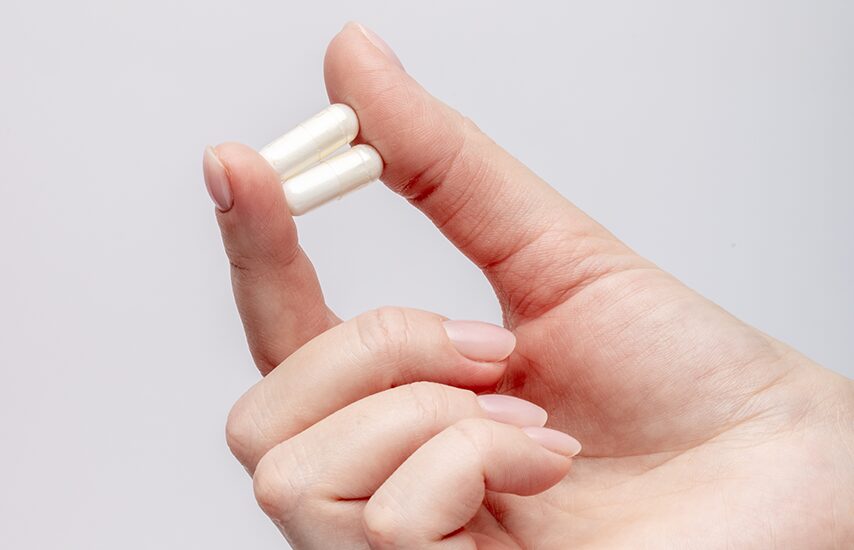Probiotics vs Prebiotics: What’s the Difference and Why You Need Both?

The terms probiotic and prebiotic often appear when discussing gut health, but what exactly do they mean? Understanding the difference between prebiotic and probiotic is crucial to optimizing your digestive health and overall well-being. In this blog, we’ll break down the roles of these essential components, their benefits, and why prebiotic and probiotic supplements—like Bioma Probiotics—are increasingly popular.
What’s the Difference Between Prebiotic and Probiotic?
Before diving into their benefits, let’s clarify what’s the difference between prebiotic and probiotic:
- Probiotics are live microorganisms, often referred to as “good bacteria.” They help maintain a healthy balance in the gut microbiota, enhancing digestive health and boosting the immune system. Probiotics are found in fermented foods like yogurt, kefir, and sauerkraut, as well as in dietary supplements such as Bioma Probiotics.
- Prebiotics, on the other hand, are non-digestible fibers that serve as food for probiotics. Found in foods like chicory root, bananas, and whole grains, prebiotics fuel the growth of beneficial gut bacteria, promoting a thriving gut microbiome.
Together, prebiotics and probiotics create a synergistic relationship, supporting gut health and overall body function.
Benefits of Prebiotics and Probiotics
Probiotic and prebiotic supplements, such as Bioma’s innovative formula, offer a wide range of benefits:
- Improved Digestive Health
Prebiotics enhance the growth of probiotics in the gut, helping to alleviate digestive discomfort, bloating, and irregularity. Probiotics like lactobacillus and bifidobacterium play a crucial role in maintaining a healthy digestive tract. - Enhanced Calcium Absorption
Prebiotics like inulin improve mineral absorption, including calcium, which supports bone health. - Immune Health
A balanced gut microbiome strengthens the immune system, reducing susceptibility to infections and inflammatory conditions like arthritis. - Gut Microbiota Balance
Probiotics replenish beneficial bacteria in the gut, especially after antibiotic use. Prebiotics help maintain this balance by providing the necessary nutrients. - Support for Irritable Bowel Syndrome (IBS)
Research suggests that probiotics may help alleviate IBS symptoms such as bloating, gas, and irregularity, while prebiotics promote a more stable gut environment. - Production of Short-Chain Fatty Acids (SCFAs)
Prebiotics are fermented in the gut, producing SCFAs like butyrate, which support intestinal health and reduce inflammation.
Foods Containing Prebiotics and Probiotics
Adding prebiotic and probiotic-rich foods to your diet is one of the simplest ways to support your gut health:
- Probiotic Foods
- Yogurt
- Kefir
- Sauerkraut
- Kimchi
- Fermented soy products like tempeh and miso
- Prebiotic Foods
- Chicory root
- Bananas
- Garlic
- Onions
- Whole grains like oats and barley
Combining these foods creates a synbiotic effect, where prebiotics and probiotics work together to optimize gut health.
Probiotic Versus Prebiotic for Constipation
When considering probiotic or prebiotic for constipation, the best choice may depend on the underlying cause:
- Probiotics can regulate bowel movements by balancing the gut microbiota. Strains like bifidobacterium and lactobacillus acidophilus are particularly effective.
- Prebiotics, such as inulin, increase stool bulk and improve regularity by enhancing water absorption and stimulating beneficial bacteria.
For chronic constipation, pre and probiotic capsules uses offer a convenient solution, combining the benefits of both.
Gut Microbiome and Health
The gut microbiome—a community of trillions of microorganisms living in your digestive tract—plays a vital role in overall health. Prebiotics and probiotics directly impact the gut microbiome in several ways:
- Probiotics introduce live cultures to maintain a healthy microbial balance.
- Prebiotics nourish these microbes, ensuring their survival and activity.
A well-balanced microbiome improves not only digestive health but also mental clarity, energy levels, and even skin health.
Interactions Between Prebiotics and Probiotics
The combination of prebiotics and probiotics, often referred to as symbiotics, offers amplified benefits compared to using either alone. For example:
- Prebiotic fiber like inulin enhances the efficacy of probiotic strains by improving their survival during digestion.
- Probiotics produce enzymes that help break down prebiotics, facilitating the production of beneficial compounds like short-chain fatty acids.
Bioma Probiotics exemplifies this interaction by including both components in its advanced formula.
Prebiotic and Probiotic Capsules Uses
Prebiotic and probiotic capsules uses go beyond addressing digestive issues. They can also:
- Support Mental Health
Probiotics influence the gut-brain axis, potentially improving mood and reducing symptoms of anxiety and depression. - Boost Skin Health
A balanced microbiome may alleviate skin conditions like acne and eczema. - Aid Weight Management
Certain probiotics help regulate metabolism and appetite by interacting with gut hormones.
Bioma Probiotics stands out in the market by combining prebiotic fibers and live cultures to deliver these benefits in one product.
Risks and Side Effects
While generally safe, both prebiotics and probiotics may cause mild side effects:
- Probiotic side effects can include temporary bloating, gas, or digestive discomfort as the gut adjusts to new bacterial strains.
- Prebiotics may lead to gas or bloating if consumed in excess.
If you’re new to probiotics or prebiotics, start with a low dosage and consult a healthcare professional if you have underlying conditions.
Choosing the Right Supplements
When selecting probiotic and prebiotic supplements, consider the following:
- Strains and Ingredients
Look for supplements with scientifically backed strains like lactobacillus and bifidobacterium. - Symbiotic Formulas
Products like Bioma Probiotics, which combine prebiotics, probiotics, and postbiotics, offer comprehensive gut support. - Quality Control
Ensure the product is third-party tested and guarantees the viability of live cultures through expiration.
Final Thoughts
Understanding the difference between prebiotic and probiotic is the first step to improving your gut health. Together, they create a powerful synergy that benefits digestion, immunity, and overall wellness. By incorporating probiotic and prebiotic capsules or supplements like Bioma Probiotics into your routine, you can take a proactive approach to maintaining a healthy gut.
Whether you’re addressing digestive discomfort, seeking relief from constipation, or simply aiming to support your immune health, combining prebiotics and probiotics in your diet or supplements can make all the difference.
Related articles



